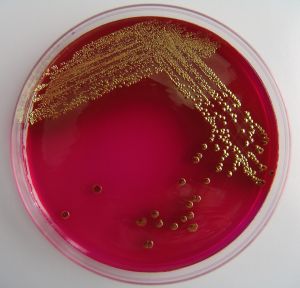
The food borne bacterial outbreak that has hit Europe particularly Germany is seen by experts as something out of the ordinary. As of June 4, 2011, 19 people in Europe already died from the E. coli outbreak that developed rapidly in the country. E. coli is a strain that causes hemorrhaging in the intestines. Thousands of people from the same country got sick from the same disease and that as of the same date; four suspected cases of the same were likewise recorded in the United States. Thus far, it seems the plague has become one of the deadliest outbreaks of E. coli in modern history.
E. coli is found in the digestive systems of humans, cows and other mammals. Generally, it has been responsible for a large number of food poisoning outbreaks around the world.
There has not been any concrete answer where and when the disease had started, as some sources thought it might be from the northern city of Luebeck in May of the same year, while other experts pointed it during a festival in northern German city of Hamburg. The U.S. Centers for Disease Control and Prevention claimed that the four suspected cases in the U.S. are all people who likely contacted the infection in May of the same year while in northern Germany and thus, could have brought it to the United States. Bloody diarrhea and abdominal cramps are common manifestations of one attacked by E. coli bacteria. In severe cases however, the damage goes beyond kidney malfunction referred to as uremic hemolytic syndrome, sometimes causing seizures, comas and strokes. Three of the four Americans who contacted the disease were hospitalized with the uremic hemolytic syndrome complication. At least about 373 in Germany and 15 in Sweden have come down with the syndrome. About 5 percent of people who has uremic hemolytic syndrome die from the ailment.
Investigators all over Europe were trying to determine to the real root cause and in what part of the county did it actually start, while in Germany, where huge majority of deaths and severe illnesses have been reported, officials said that investigations showed that people were more likely infected from eating raw vegetables as cucumbers, tomatoes and lettuce. A warning to consumers has already been done to avoid those vegetable in question. Russia, in fact goes beyond banning the import of said vegetables to their country particularly those that comes from Spain and Germany. It was said that the ban may extend to other European Union member countries because of questions as to the source of the infection.
A food borne disease expert from the U.S. Center for Disease Control and Prevention finds the outbreak alarmingly extraordinary in that the complications are more severe than it usually is. He called the severity of the incidence as first in the history of public health as this one has such a high death toll. It was also noted that about 86 percent of the victims are adults and that it is quite unusually rare that only few children got the disease.
Among the total number of E. coli cases, those in Germany top the most with a recorded of 1,150 cases. Other infections have been reported in United Kingdom, Netherlands, Switzerland, France, Denmark, Poland, Austria and the Czech Republic and many of these cases have traveled recently to Germany.
New evidence added to the highly politicized mystery that at least two strains of enterohaemorrhagic E. coli or EHEC may have contaminated German vegetables.
In another updates, European Union officials said that organic cucumbers from Spanish origin specifically from regions of Almeria and Malaga, packaged in Germany and distributed to various countries are identified as possible sources of contamination, and that another suspect batch, that originates from either in the Netherlands or in Denmark which are sold in Germany, was also under investigation. These prompted the Food and Drug Administration of Germany to test and clear the cucumber, tomatoes and lettuce before they will be brought to the United States for import.
People from the countries involved are called to exercise precautions to avoid getting infected. Other than being advised to avoid eating raw cucumber, tomatoes and lettuce, the hygiene is also very essential to avoid the spread. In particular, the universal precaution, which is proper hand washing is the key.

No comments:
Post a Comment